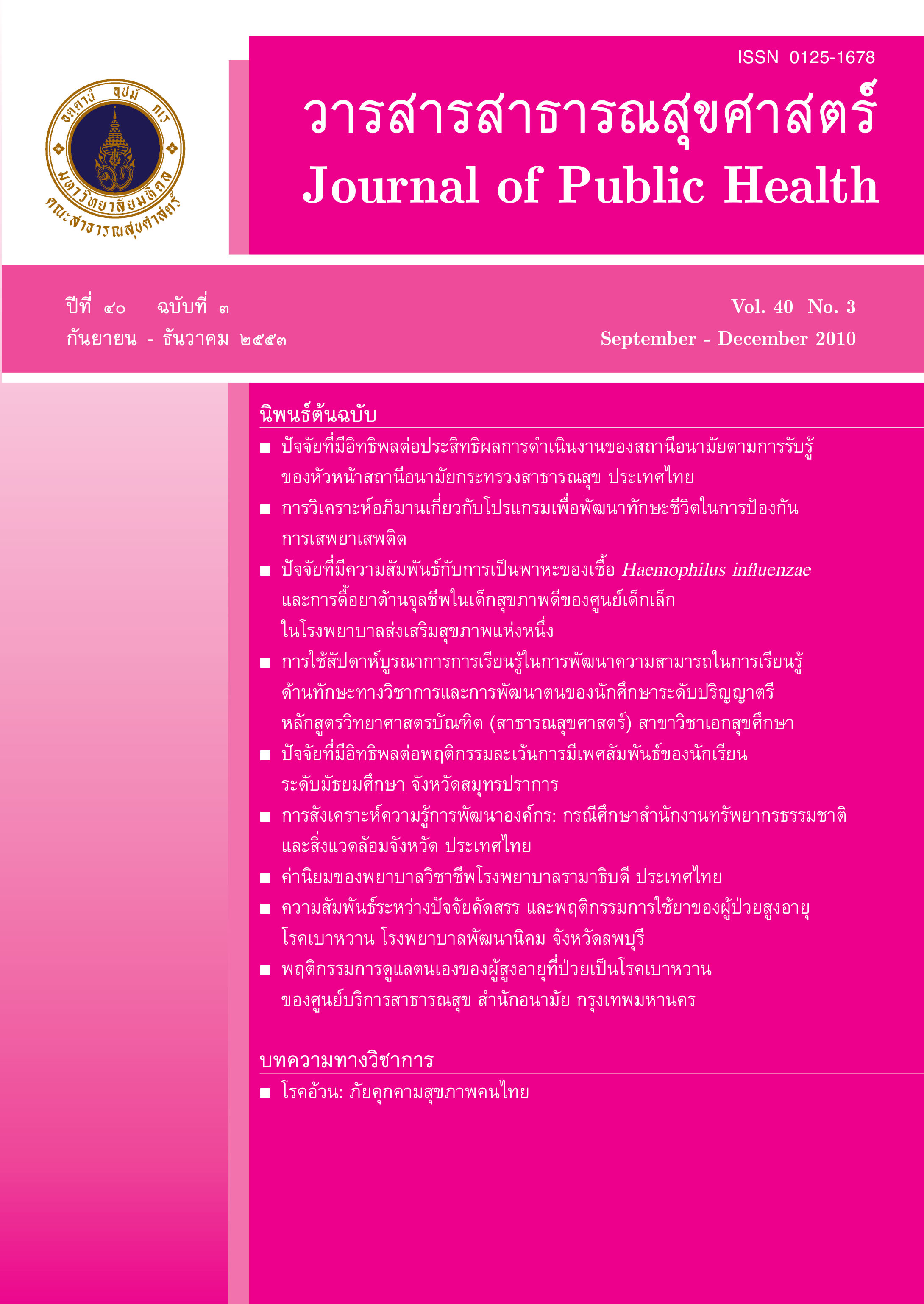Factors Associated with Oropharyngeal Carrier of Haemophilus influenzae and Antimicrobial Resistance in Healthy Children Attending Day-care Center of a Health Promotion Hospital
Keywords:
Oropharyngeal carrier, H. influenzae, healthy children, Day-care Center, antimicrobial resistance, การเป็นพาหะในลำคอ, เชื้อ H. influenza, เด็กสุขภาพดี, ศูนย์เด็กเล็ก, การดื้อยาต้านจุลชีพAbstract
ABSTRACT
A cross sectional study was performed in the children attending a day-care center of Health Promotion Hospital to evaluate the carriage rate and factors associated with the Haemophilus influenzae oropharyngeal colonization and antimicrobial susceptibility of H. influenza. The samples were 189 children, 95 boys and 94 girls. The data were collected by self-administered questionnaire, the secondary data by reviewing the history folder recorded by the day care, physical examination and oropharyngeal swab during July–November 2007. Data were analyzed by frequency, percentage, Chi-square test, and Multiple logistic regression. The results showed that 44.4% of the children were the oropharyngeal carrier of H. influenza and 1.1% of these were H. influenzae type b. Factors associated with H. influenzae carrier with statistical significance were the children’s age less than 3 years, history of premature, birth weight less than 2,500 grams, the present of more than 2 children aged less than 10 years at home, family members of more than 5 persons, maternal occupation of employee or government officer, extended family, and the children not received H. influenzae type b (Hib) vaccine. The factors influencing the oropharyngeal carrier of H. influenzae were history of preterm labor, and the number of over 2 children aged below 10 years living in the house. For antimicrobial susceptibility test results 68.5% of H. influenzae were resistant to cotrimoxazole, 31.5% to ampicillin, and 1.1% to cefotaxime. Therefore, the family and child care organizations should have the plan to prevent the spreading of disease and reduce the chances of H. influenzae carrier in children since pregnancy by preventing preterm labor, low birth weight and health care in the family with several members particularly in the family which have the children aged below 10 years, as well as giving the vaccine to reduce the risks of carrier, transmission prevention, and the usage of appropriate antibiotics.
Key words: Oropharyngeal carrier, H. influenzae, healthy children, Day-care Center, antimicrobial resistance
Downloads
Issue
Section
License
Creative Commons License CC-BY-ND


